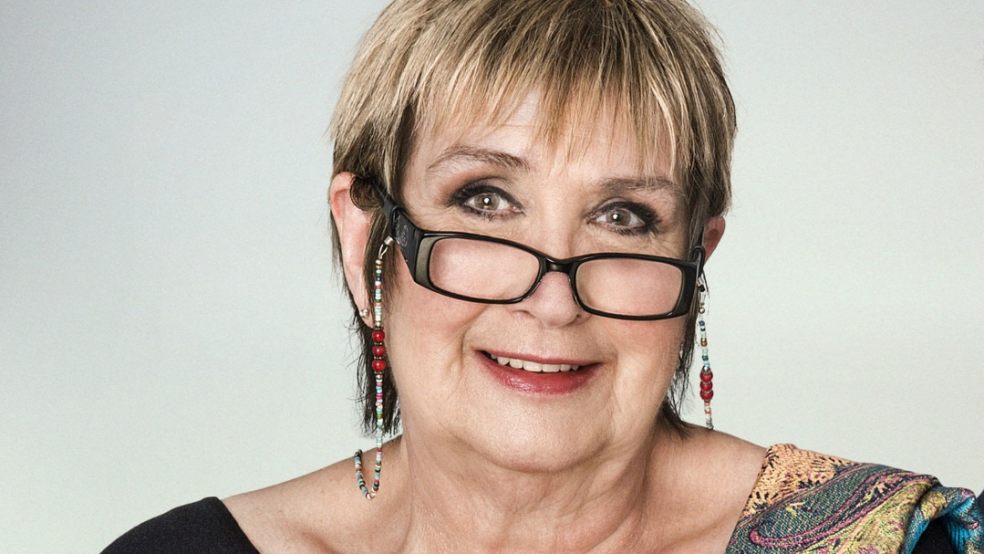
Dame Jenni Murray talks about her battle with obesity
For much of her adult life, Dame Jenni Murray, longtime presenter of BBC Radio 4’s Woman’s Hour, has been overweight, even obese.
She has been called ‘fat cow’ in the street many times, or taunted with cries of, ‘Eh, love, who ate all the pies?’
“The taunting infuriated me and it hurt,” says Murray, 70, whose weight yo-yoed between 14 and 24 stones for some years. She had tried every diet, from Weight Watchers to Atkins and Dukon, but ended up putting back on all the weight and more, she recalls.
At 64, the presenter avoided the scales, refusing to make connections between her weight and health issues, telling herself she was fat and happy. In private she feared that being fat would probably kill her before she hit 70. She’d already had breast cancer – a disease which has been linked to obesity – and a double hip replacement.
The catalyst for change happened on one of her slow, lumbering walks with her dogs and her grown-up son, Charlie. They were having a little sit-down when an enormous woman passed them driving a mobility scooter, her two dogs trotting beside her, their leads attached to the handlebar.
“’Blimey Mum’, said Charlie, his voice full of concern, ‘if you aren’t careful, that’ll be you before long’,” she recalls.
His comment prompted her to eventually shed ten stone and stabilise her weight. Now she is revealing her candid story about her battle with obesity in Fat Cow, Fat Chance, in which she also examines the science and psychology of size.
Fat-shamers insist that obesity is the result of lazy, greedy people with no self-control, but obesity is a disease which should be treated as such, she says, a claim backed up by research in the book.
“James Corden said very openly, ‘If fat-shaming worked, there would be no fat kids in school’.”
Her mother, Win, a Yorkshirewoman who had an ethos of ‘eat everything on your plate’, following wartime and post-war austerity, fed young Jenni large portions and then fat-shamed her cruelly when she put on weight.
“I wasn’t fat when I was a kid. I wasn’t even a fat teenager. I had a big frame – I had my father’s bone structure. But my mother was a slim, elegant woman, never fat, although she was continuously dieting.”
When Murray returned from Hull University two stones heavier during the Easter break of her first year, after living on toast, chips and stodgy canteen food and alcohol from the student union bar, her mother couldn’t suppress her anger, telling her ‘You look like a baby elephant’.
“I’d gone from a pretty regular nine and a half stones to 11 and a half stones and my mother was appalled. But I forgive her because all she really wanted was for me to be the best that I could be,” she says now.
But the presenter’s weight really ballooned when she was working on Woman’s Hour and moved house with her husband David and sons Ed and Charlie to the Peak District.
During the week she lived in a basement flat in London she nicknamed ‘Wuthering Depths’, where she became depressed and started comfort eating. Only at weekends, when she was back home with her family, did healthy eating prevail.
“I bought takeaways, pre-prepared food from the supermarket, drank far too much wine, empty calories. I wasn’t doing much exercise because I would go to work very early, I’d have two lattes (not skinny ones), a couple of croissants and we’d finish the programme before lunch, either go to the canteen and eat chips or the local Turkish restaurant for pitta bread, hummus and wine.
“It was the evenings when I would comfort eat. We don’t necessarily eat when we’re hungry and that’s the crucial thing. That line has hung over my head as far back as I can remember – listen to your appetite. It was the one subject in which I appear to be profoundly deaf. I can’t hear my stomach. I just eat because it’s something to do.”
She became so low that on one occasion she called the Samaritans.
“I was so down one night, stuck in that basement flat. I was worried about the kids, about home, about the husband and the programme the next day, probably after having eaten a pizza and a bar of chocolate. I don’t even really like chocolate. I just needed to talk to somebody.
“The young man was so sweet, he listened and answered and asked me questions.”
She went on to have therapy, which didn’t work for her, as well as trying all sorts of diets, unsuccessfully.
In the end, she chose the surgical route after her new GP told her frankly that she needed to address her weight. She had colleagues who’d gone down the gastric band route including TV and radio presenters Vanessa Feltz and Fern Britton, but Murray remained cautious, having heard horror stories about bad experiences.
Finally, a guest surgeon talking about obesity in children on her show took her through the options (off air) and she chose to have a ‘sleeve gastrectomy’, an irreversible procedure in which a large part of the stomach is removed, so you can’t eat as much as you did and you feel fuller quicker. It cost her £11,000.
“As so much of the stomach has been removed, so the hunger hormones are also removed. I don’t feel hungry like I used to,” she explains.
She had the operation in June 2015, aged 65.
“I was scared witless,” she recalls. “I’d had my breast removed, I’d had my hips completely changed. I was thinking, ‘Come on, do you really want to go into another operating theatre and never be quite sure if you’re ever going to come out again?’
“As for my family, there were a lot of ‘Are you sures?’ But I had researched it properly and was convinced it was the right thing to do.”
The recovery was much less painful than she anticipated. She returned to work two weeks after the operation and after an initial liquid-only diet followed by sloppy purees, she returned to eating normally eight weeks after surgery.
“I went from 24 stones to 14,” Murray recalls. As she explains in her book, that included eight stone in less than a year.
Today, she has her meals on a small plate and when she goes out to dinner, she’ll order two starters instead of a main – but no bread and generally no pudding as she’s too full.
Her energy levels and her mobility have been transformed and five years on, her weight seems to have stabilised at around 14 stones, which she says she’s happy with.
“I don’t mean to insult or upset Nigel Lawson in any way, but when he went on his diet he lost more than half his body weight and his face just crumbled. I thought, hang on, I’m 65, do I really want to lose this nice skin that’s not wrinkled? So I didn’t try to lose any more weight. If I fancy a chocolate eclair, I’ll have one.”
She wouldn’t want any more surgery to remove the loose skin which has amassed around her tummy and the tops of her arms, she reveals.
“Unless it is to save my life, I will never go under the scalpel again.”
So, how will society change its attitude to obesity?
“We have to get people to understand what is causing it and change the attitude that it’s their fault, they’re lazy, they’re greedy. It’s much more complicated than that. It is a disease and there is treatment for it which, in the long run, will save the NHS a lot of money.”
Fat Cow, Fat Chance by Jenni Murray will be published by Doubleday on July 16, priced £16.99.
Image: Jenni Murray/PA













